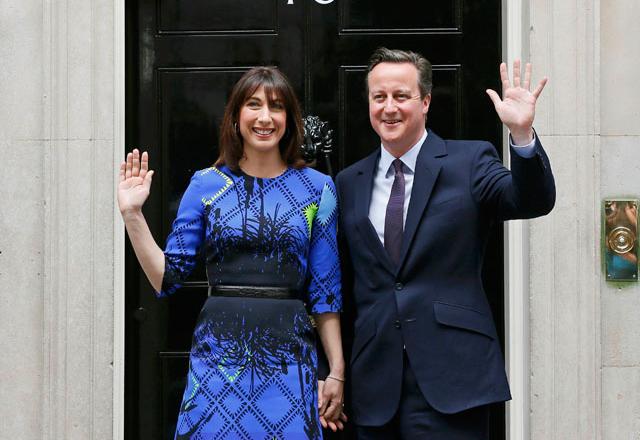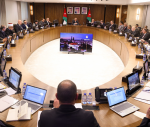You are here
UK’s Cameron denies that army is no longer full US partner
By Reuters - Jan 17,2014 - Last updated at Jan 17,2014
LONDON — Prime Minister David Cameron said on Thursday former U.S. defence secretary Robert Gates was wrong to say that spending cuts meant Britain’s armed forces were no longer able to be a full military partner of the United States.
His blunt response underlined how sensitive his government is to charges that Britain’s close ties with the United States have been undermined by cuts to its military and parliament’s refusal to okay British involvement in any air strikes on Syria.
It also reflected his determination to carry out spending cuts aimed at reducing large public debts, which top generals and even senior lawmakers in his own Conservative party have suggested to have been too deep.
Britain is the world’s fourth largest military spender after the United States, China and Russia but is cutting the army by 20,000 soldiers over this decade while its navy will lose 6,000 personnel and its air force 5,000.
Earlier on Thursday, Gates, who served as defence secretary under presidents George W. Bush and Barack Obama, said he lamented the fact that the cuts had limited Britain’s ability to work with the United States.
“With the fairly substantial reductions in defence spending in Great Britain, what we’re finding is that it won’t have full spectrum capabilities and the ability to be a full partner as they have been in the past,” Gates told BBC Radio.
In central London inspecting a new rail project, Cameron bristled at the remarks.
“I don’t agree with him. I think he has got it wrong,” said Cameron. “We have the fourth largest defence budget anywhere in the world. We are a first-class player in terms of defence and as long as I am Prime Minster that is the way it will stay.”
Gates highlighted the fact that Britain, for the first time since World War One, does not have an operational aircraft carrier even though the first of a new generation of carriers is due to enter into service in 2020.
Cameron said what he called a “massive” 160 billion pound ($261.63 billion) investment programme would pay for new aircraft carriers, nuclear submarines, destroyers and frigates.
Britain’s defence ministry said it also disagreed with Gates, saying in a statement that Britain had “the best-trained and best-equipped Armed Forces outside the US”.
Comrades in arms
Britain was the only major power to join the United States on the battlefield in Iraq, and by far its most important comrade in arms in Afghanistan.
More than 600 British troops have died under US command in those two wars, since Prime Minister Tony Blair declared he would stand “shoulder to shoulder” with America after the September 11 attacks on the United States in 2001.
But parliament’s shock vote against any British military action in Syria in August and the scale of the defence cuts have prompted some British politicians and generals to question whether Britain will be able to project military power in the same way in the future.
Last month, Britain’s top soldier, General Nicholas Houghton, disclosed he was worried that spending cuts would leave the armed forces a hollowed-out force with “exquisite equipment” but without enough personnel to man it.
The opposition Labour Party suggested Gates had a point, saying the cuts had eroded confidence in Britain’s commitment to defence and its ability to continue to play a significant role in the world.
“It should worry David Cameron that Britain’s strongest ally has concerns about his Government’s mishandling of defence,” said Vernon Coaker, Labour’s defence spokesman.
“The Government must ensure that Britain’s defence capability is maintained.”
Related Articles
His Majesty King Abdullah on Wednesday congratulated Britain’s Prime Minister David Cameron on his party’s win in last week’s general election.
WARSAW — Officially the talk at this week’s NATO summit in Warsaw was all about deterring a resurgent Russia, supporting Ukraine and Afghani
Britain awoke to a new political landscape on Saturday after a shock election victory for Prime Minister David Cameron that decapitated the opposition and bolstered secessionists in Scotland.

















